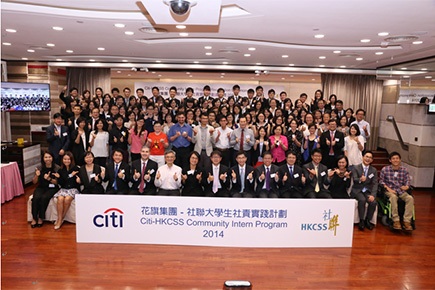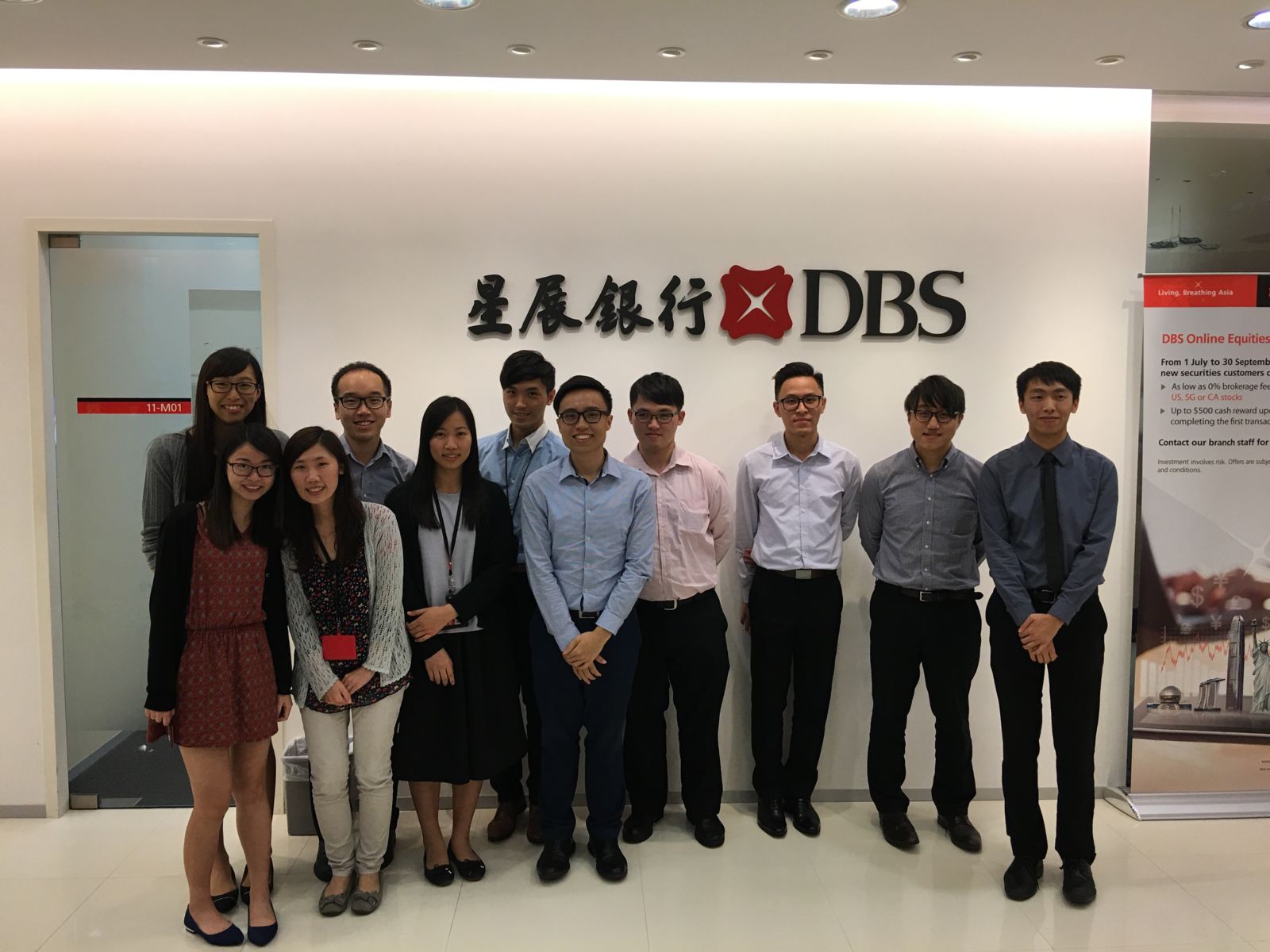Decision Analytics & Operations (Majors: BBA Business Decision Analytics / BBA Global Operations Management)

1025 (JS1025)
Local Places:
24 (For First Year Entry; Tentative)*
Non-Local Places
(For Overall Direct Applications):
Around 400
+852 3442 8644
+852 3442 0189
* for JUPAS and non-JUPAS admissions
This programme and the department are formerly known as Management Sciences before 1 Jan 2025.
This is a broad entry programme to the Department of Decision Analytics and Operations (DAO). We are interested in developing and applying models, concepts, and tools to gain insights from data and achieve operational efficiency. These problem solving and decision making skills are becoming increasingly popular in the big data era and the competitive business environment.
In your first academic year, you will study business foundation and Gateway Education (GE) courses. After one year, you will enter either BBA Business Decision Analytics (BDAN) or BBA Global Operations Management (GOM) as your major.
Note: this programme and the department are formerly known as Management Sciences before 1 Jan 2025.
The BBA Business Decision Analytics (BDAN) programme aims to develop students' qualitative and quantitative ability to solve business problems and make decisions via data analytics. We provide a comprehensive training in business analytics, statistics, business intelligence, risk management, marketing analysis, business knowledge and communication skills.
學習商業分析、數據統計、商業智能、風險管理及資訊管理
學習如何利用SAS, SPSS, Excel VBA and Python 等工具管理及分析龐大企業數據
獲得國際專業組織認可,如SAS資格認證及金融風險管理考試
幫助你準備在金融、商業及政府部門中擔任統計、分析及管理職位
The BBA Global Operations Management (GOM) programme aims to equip students with the knowledge and skills to tackle the operational challenges of contemporary managers. Students learn to identify operations improvement opportunities for companies, propose and implement improvement solutions, and present their findings and results to senior executives.
學習如何設計及優化業務流程
學習有效運用資源包括人力、資金、時間及其他資源
幫助你在管理培訓生、營運經理、營運分析師、項目經理的職業上作準備
After one year of study, you will go through a major allocation exercise and enter either BDAN or GOM as your major. The top 40% of students in the department will have a free choice of majors (based on CGPA with at least 30 credit units and no failed grades). The remaining 60% of students will be allocated a major subject to the availability of places and the selection criteria set by individual majors.
Rich opportunities at DAO:
- Subsidized overseas exchange programme
- Subsidized study tours to destinations like Tokyo, Nanjing and Sydney
- Internship and placement referral
- Undertake double majors and/or minors
- Joint Programmes:
- 3+1 Joint Programme with University of Southampton (3yr BBA BDAN/GOM + 1yr MSc@Southampton)
- 2+2 Joint Bachelor's Degree Programme with Columbia University (2yr BBA BDAN + 2yr BA@Columbia) (http://gs.columbia.edu/cityu-hk/)
- 3+1 CityUHK Talent Programme (3yr BBA GOM + 1yr MSc OSCM)
- BDAN programme is accredited by the Royal Statistical Society (RSS); graduates can join the Graduate Statistician professional membership by RSS
- Prepare for professional qualifications such as RSS Chartered Statistician, SAS Programming Certification and/or FRM Examinations
Rich opportunities at College of Business:
- College of Business is among the top four business schools in Asia (https://www.cb.cityu.edu.hk/About-the-College/Accreditation-and-Rankings/International-Rankings)
- Entrance scholarships up to HK$265,000 are available for elite students (https://www.cb.cityu.edu.hk/Programmes/Undergraduate-Programmes/Scholarships)
- Overseas exchange and summer programmes are available in over 200 partner universities around the globe! (https://www.cb.cityu.edu.hk/ug/admissions/exchange)
- Over 80% of students secure local and global internship opportunities in areas including banking, accounting, IT and consulting.
JUPAS Entrance Requirements
| JS1025 Decision Analytics and Operations (Majors: BBA Business Decision Analytics / BBA Global Operations Management) | |
| HKDSE Subject | Minimum Level Required |
| English Language | Level 3 |
| Chinese Language | Level 3 |
| Mathematics | Level 3 |
| Citizenship and Social Development | Attained |
| Elective 1 | Level 3 |
| Elective 2 | Level 3 |
Notes:
- Apart from Category A elective subjects, Mathematics extended modules (M1/M2) and “other languages” can also be used to meet the elective requirement. If students take both M1 and M2, they are counted as one subject only.
- Applied Learning subjects are not counted as elective subjects.
- For details of the alternative Chinese Language qualifications acceptable by the University for Non-Chinese Speaking (NCS) students, please click here.
Please refer to the General Entrance Requirements set by the university.
First year: business foundation courses (Introduction to Financial Accounting, Business Statistics, Operations Management, Management, Microeconomics, Information Management, Marketing) and Gateway Education courses (Languages, General Education).
Second year onwards: depends on your majors. Please refer to the following websites for the detailed curriculum:
Many of our students are able to find summer internship, either by themselves or through our referral, in various industries. Below are some sharing from the students:



Fred Chan (Intern in DBS Bank)
Job Nature
Hello, I am Fred. I have worked in the Development Bank of Singapore (DBS) since August 2013. My main duty is to analyse products and produce accurate reports.
How can I find this internship?
The department already has a long-term relationship with DBS, and cooperates with DBS to set up this internship programme every year. If DBS has an internship vacancy, they will contact the Department, and students will then be invited to take part in the programme. The main selection criteria are previous working experience and academic performance (e.g., SAS and VBA).
How does the knowledge learned in the major fit my job?
The knowledge I gained is highly related to my job. In the daily analysis, I mainly use SAS and Excel VBA programming to handle and analyse large amount of data. Those programming skills are our competitive advantage. I also learnt a lot about data mining tools and different statistical models in my major. This is very useful for analysing different structures and types of data in my job.
How can I effectively study a Business Analysis major if I did not study M1, M2, Pure Mathematics and Computer subjects in my secondary school?
I thought the same thing before I studied managerial statistics. In my secondary school I was a science student but I only studied Biology, Chemistry and Physics, which only provide simple Mathematics knowledge. The fact is, there are different statistics and programming subjects in Business Analysis, but don’t worry! We don’t need to know every Mathematics procedure and proof. These subjects mainly focus on application and concepts, so if you try your best you can study and learn very well!

Venita Ho (Intern in Standard Chartered Bank and Hang Seng Bank)
Hello, I am Venita. In the past two years, I have completed two internships, at the Standard Chartered and Hang Seng Banks.
Intern in Standard Chartered Bank
I made the decision to apply for an internship at the Standard Chartered Bank, and although at first I was only responsible for data input, I soon got the opportunity to do data analysis using Excel.
Intern in Hang Seng Bank
I was offered an internship at Hang Seng Bank through our department in January this year. After learning SAS programming in the last semester, I wanted to gain more experience by working in banking companies. I have met new friends during my internship period, and it is interesting that most of them are also MST graduates. This proves that these banking companies are likely to offer jobs to students from our programme. I am certain that our courses provide us with practical skills that will help us in our future careers.
BDAN graduates are prepared for statistical, analytical and managerial positions in financial, commercial and government sectors.
GOM graduates are prepared for positions like management trainees, operations analysts and project managers in consulting, financial operations, health care operations, procurement and sourcing, retail management and supply chain management areas.